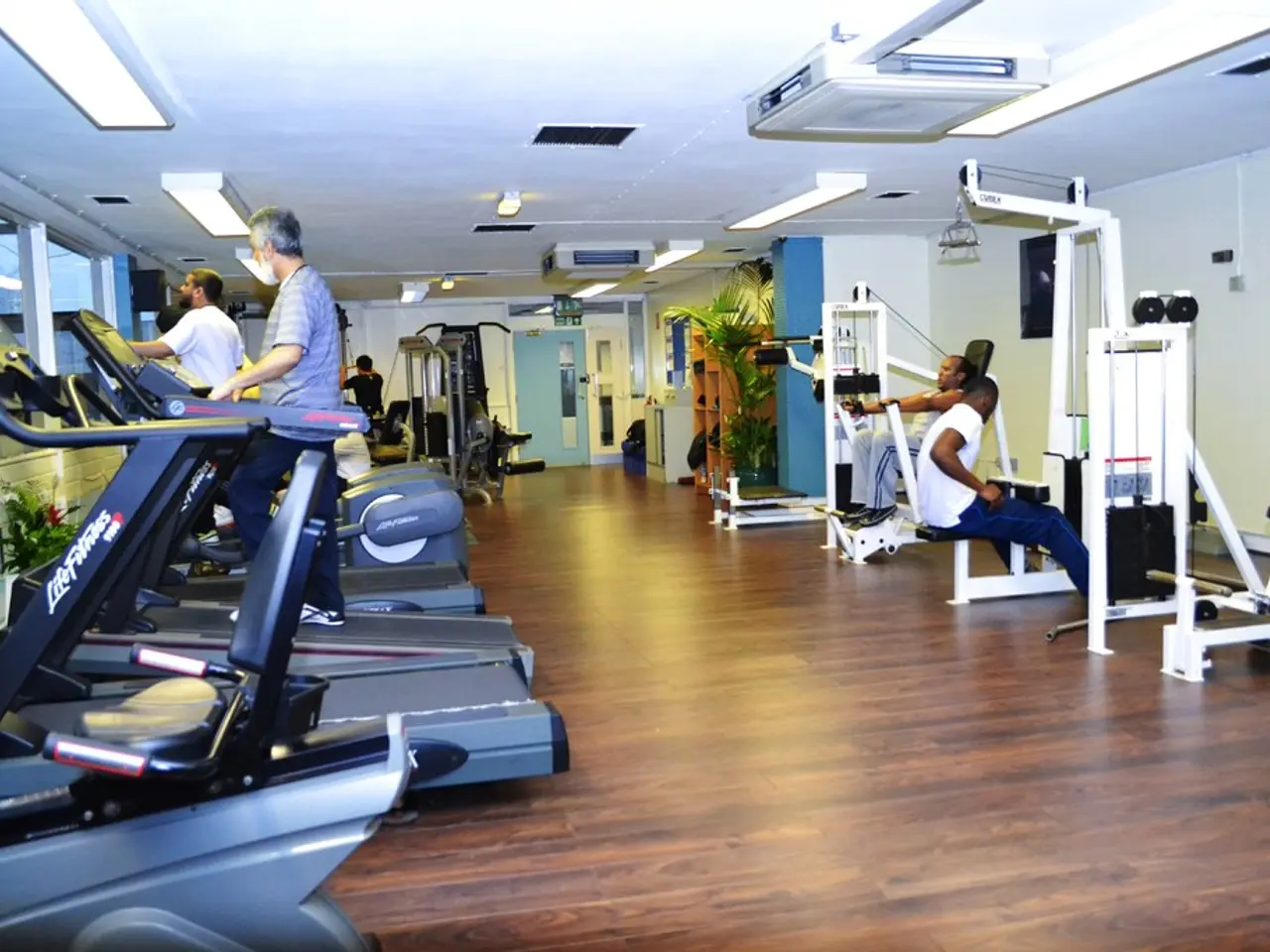Vital Fitness Solutions for Individuals with Physical Impairments: Exploring Various Workout Methods
=============================================================================================================
Staying active is essential for everyone, and this is especially true for individuals with physical challenges. In today's world, there are numerous ways to maintain an active lifestyle, even with limited mobility. Here's a look at some effective fitness options, adaptive sports, and mindfulness practices that cater to individuals with physical challenges.
Chair Workouts: Your Seat Can Be Your Gym
Chair workouts offer a great solution for those with limited mobility. These workouts encompass seated strength training and chair yoga, allowing individuals to focus on their flexibility, balance, and muscle tone. Strengthening specific muscle groups can aid in mobility and stability, making daily activities easier.
Group Classes and Adaptive Sports: Connecting and Competing
Group classes and adaptive sports provide opportunities for social connection and camaraderie. Participating in adaptive sports like wheelchair basketball and sitting volleyball can be a fun and engaging way to exercise. These activities not only build strength and teamwork skills but also foster a sense of community.
Mindfulness Practices: Cultivating Mental Well-being
Incorporating mindfulness practices such as meditation and deep breathing can enhance mental well-being. These practices help individuals manage stress, reduce anxiety, and improve overall mental health.
Virtual Fitness Classes: Exercise at Home
Virtual fitness classes designed for individuals with physical challenges are now available, allowing participants to exercise from the comfort of their homes. These classes can include yoga, pilates, or cardio workouts, catering to various fitness levels and preferences.
Creating an Inclusive Fitness Environment
To create an inclusive fitness environment, it's important to educate staff in adaptive techniques, offer diverse classes, and use adaptive equipment. Investing in accessible weights, resistance bands, and supportive seating can help accommodate various physical abilities.
The Power of Physical Activity
Regular exercise helps build muscle strength and flexibility in individuals with physical challenges. Exercise serves as a natural mood booster, fostering a sense of accomplishment and self-esteem. Physical activity also releases endorphins, which can reduce feelings of anxiety and depression.
Water Aerobics: A Low-Impact Workout
Water aerobics is a low-impact workout that enhances cardiovascular fitness and strength for individuals with physical challenges. This workout is gentle on the joints, making it an excellent option for those with mobility issues.
Organizations in Germany: A Supportive Community
Organizations in Germany, such as "Inklusion durch Sport," "Lebenshilfe," and specialized programs by the "Deutsche Behindertensportverband (DBS)," offer virtual fitness classes specifically for people with disabilities. These organizations provide a supportive community for individuals to stay active and improve their overall health.
Staying active is crucial for individuals with physical challenges, as it helps develop skills that promote greater independence in daily activities. Embrace fitness, and discover the numerous benefits it has to offer.
Read also:
- Peptide YY (PYY): Exploring its Role in Appetite Suppression, Intestinal Health, and Cognitive Links
- Toddler Health: Rotavirus Signs, Origins, and Potential Complications
- Digestive issues and heart discomfort: Root causes and associated health conditions
- House Infernos: Deadly Hazards Surpassing the Flames








